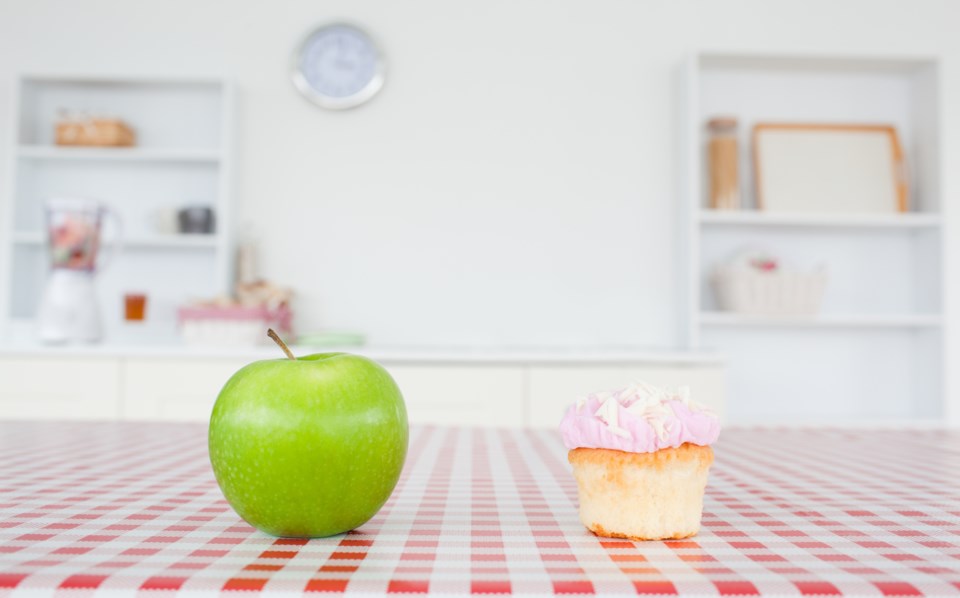Everyone is scared of fat, but why?
Because we have been brainwashed for many years with the unrealistic idea that the “perfect” woman or man is supposed to be skinny. We need to come to terms that we are are different shapes and sizes and it’s truly a beautiful thing. In fact, soft bellies and curves on a woman were actually signs of beauty and wealth for a really, really long time.
At some point we got fed a horribly toxic idea that we are supposed to be stick thin and that fat is our most horrible nemesis when it comes to image and health.
Removal of fats from our diets has lead to an increase of low fat products and carbohydrates being consumed contributing to more obesity and more diabetes. Refined carbs and sugar are the real enemies.
There are so many misunderstandings about fat. The mere sound of the word makes most people cringe. The truth is that we need fat, it is one of the macronutrients that is needed in human nutrition making up an important component of our diets. Fat is good for you for so many reasons, as our own physiology tells us. Our brains are 60 per cent fat, fats are required to transport nutrients such as Vitamin A, D, E, and K , and some fats actually lower cholesterol. And the list goes on.
This is biology folks, and not some crazy holistic diva telling you what's what. Well, maybe a little, but in the best way possible.
Fat is in! Embrace it, for your overall health's sake.
Now like most things there are good fats and bad fats and knowing how to siphon through labels and information may save your life.
Here is what you should avoid and why:
Bad fats
Low fat and fat-free
Fat-free foods are high in sugar, salts, refined carbohydrates, and other terrible crap including artificial preservatives that can actually make you gain weight and cause all sorts of health problems. Please don’t eat this. Don’t give in to the dark side.
Trans fats
Although they taste delicious, don’t be tempted by this toxic mistress. Not only do they increase your bad cholesterol but they also lower your good cholesterol that protects you against heart disease. Trans fats also increase inflammation in your body, causing a plethora of health problems. Avoid anything fried or battered, French fries, margarine, and shortening (please, in the name of all that is holy, do not eat shortening).
Hydrogenated anything
Hydrogen gas is positioned below a vat of oil and the gas is allowed to bubble up into the oil. This does a few things: It lowers the quality of oil, but more horrifyingly, it converts unsaturated fatty acids into trans fats that increase cholesterol and other nasty health problems.
Good Fats
Saturated Fats
Yes, butter, ghee, and coconut oil are all good for you. The USDA for years had been advising to reduce or eliminate saturated fats and replace with bastardized counterparts that doesn’t even resemble real food (like margarine, etc) but a new meta-analysis published in the Annals of Internal Medicine and some common sense (because humans have been eating saturated fats for thousands of years) have been turning eating habits to the way our ancestors ate with good old fashion healthy delicious saturated fats!
Monounsaturated Fats
Olive oil and avocado oil (as long as it’s not heated) are the best and healthiest form to use. Great for you heart and arteries, this double bond oil is liquid at room temperature and can also help reduce cholesterol levels.
Essential Fatty Acids (EFAs)
Essential means that we need to get it from outside source. EFAs, especially Omega 3 fatty acids, benefit our overall health in many ways: They improve our cell’s response to insulin, reduce inflammation in the body, and protect against heart disease. Sources include flax seed, walnuts, and fatty fish like salmon.
Recipe: "Pimp my Salmon"
Marinade:
- 1 scallion, minced
- 2 tbsp Tamari sauce
- 1 tbsp Apple Cider vinegar
- 1 tbsp honey
- 1 tsp minced fresh ginger
- Juice of one lemon
- 3 cloves garlic
Preparation:
1. Whisk ingredients in a medium bowl until the honey is dissolved. Place salmon in a sealable plastic bag, or glass container add 3-4 tablespoons of the sauce and refrigerate; let marinate anywhere form 15 minutes to an hour. Reserve the remaining sauce.
2. Broil the salmon 4 to 6 inches from the heat source until cooked through, 6 to 10 minutes. Drizzle with the reserved sauce and garnish with 1 tablespoon of sesame seeds. To toast sesame seeds, heat a small dry skillet over low heat. Add seeds and stir constantly, until golden and fragrant, about 2 minutes. Transfer to a small bowl and let cool.
Serving Suggestions
- Serve over a bed of whole grains suck as brown rice or quinoa; add some broth to water when cooking grains for added flavour.
- Serve on top of a salad loads with greens and veggies
- Add some roasted veggies to your meal. In a pan throw together peppers, zucchini, yams, carrots fresh rosemary, and extra virgin olive oil, bake until veggies are soft!



